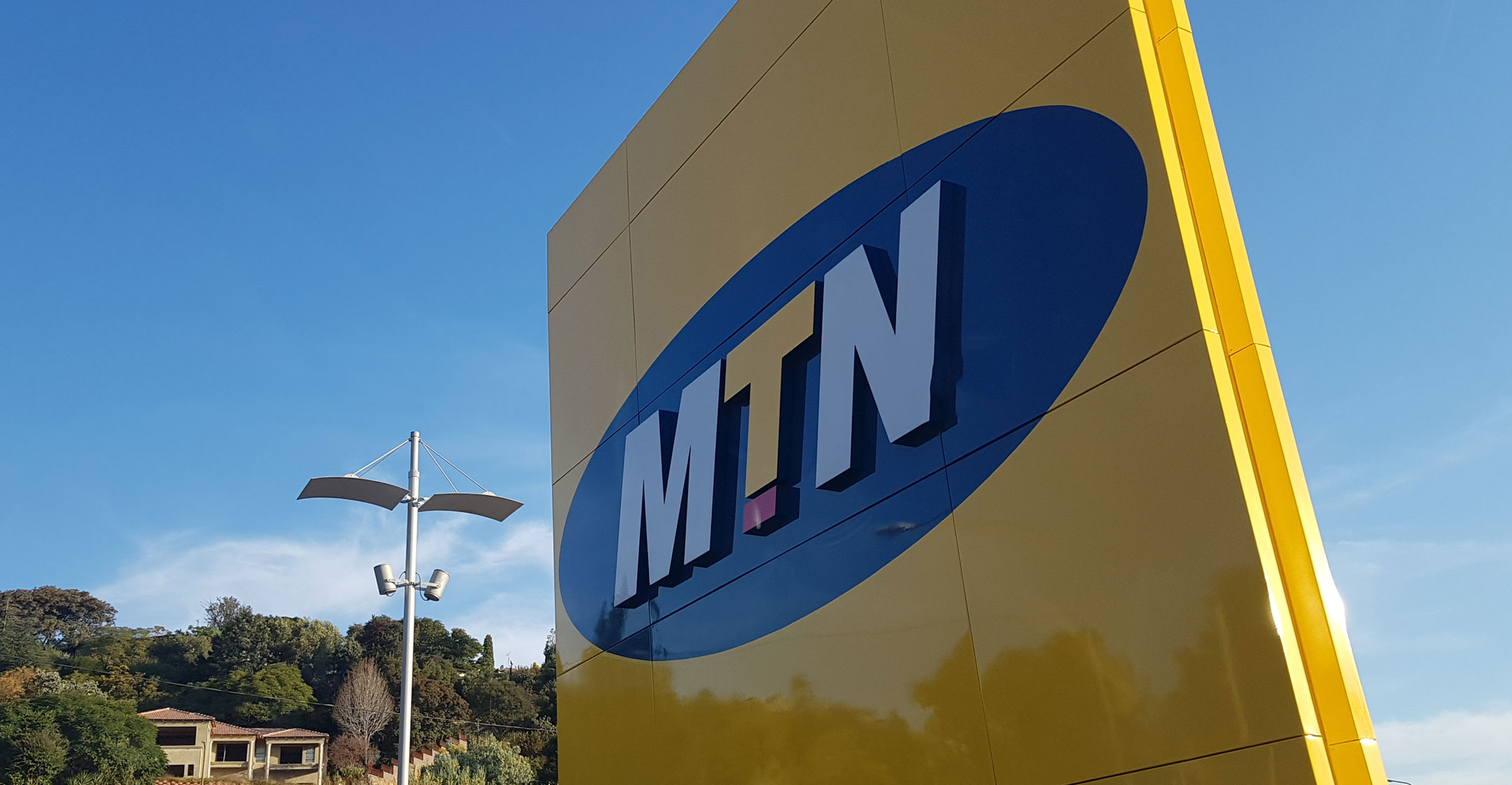
MTN Group CEO Rob Shuter on Thursday voiced his disappointment in the Competition Commission’s report on the data services market in South Africa, arguing it was poorly framed and failed to acknowledge the successes of the industry.
In a call with investment analysts, Shuter said: “Mobile is one of the few areas where we have world-class national service accessible for all South Africans, and we believe it is regrettable and unnecessary that the report has painted the industry in such a negative light.”
The commission’s report has drawn varied reactions from industry commentators, with some welcoming its move to intervene in retail data prices and others warning that the commission has grossly overreached and risks harming investment in the sector.
“We do not believe the report sufficiently acknowledges the progress made to date on data price transformation,” Shuter said on the call.
“Having said that, we also need to move forward in a constructive way. We will continue engaging constructively with the commission and other stakeholders,” he said. “We have met with the commission and we met with the regulator (Icasa) and with a number of the key ministries where we are putting forward our position and reinforcing our arguments made. We are being constructive and solution-focused in discussing their concerns with the prepaid 30-day bundles, bearing in mind our existing plans as well as our spectrum constraints.”
Legal route
He warned, though, that MTN will take the legal route if there is a “fundamental difference of opinion” with the commission. “The legal route available to us would be to defend the position in front of the Competition Tribunal if it is referred by the Competition Commission, and this is a well-regulated process in South Africa.”
Some of the more contentious interventions the commission has tabled include:
- Vodacom and MTN must independently reach agreement with the commission on substantial and immediate reductions on tariff levels, especially prepaid monthly bundles, within two months of the release of the report, or face prosecution. “The preliminary evidence suggests that there is scope for price reductions in the region of 30% to 50%.”
- Vodacom and MTN must reduce the headline prices of all sub-500MB 30-day prepaid data bundles to (warning: mouthful ahead) “reflect the same cost per megabyte as the 500MB 30-day bundle, or cost-based differences where such cost differences have been quantified, as well as the cessation of partitioning strategies that contribute to anti-poor pricing and/or inferior service outcomes”. It’s not entirely clear what that means, but it may imply that the per-megabyte cost of prepaid bundles must be the same as contract/post-paid options. We won’t know for sure until the final report is published.
- Vodacom and MTN must cease partitioning and price discrimination strategies that may facilitate greater exploitation of market power and anti-poor pricing.
- All mobile operators must reach agreement with the commission within three months to offer all prepaid subscribers a lifeline package of daily free data to ensure all citizens have data access on a continual basis, regardless of income levels. The amount of free data must still be determined but must be “sufficient to ensure each citizen’s participation in the online economy and society”. It will be adjusted upward annually.
- All mobile operators must comply with an industry-wide approach to zero-rating access to content from “public-benefit organisations and educational institutions”.
- Legislative changes must be made to facilitate “cost-based access” to operator’s networks.
 A slightly shortened and edited transcript of the remarks made by Shuter during Thursday’s call with analysts follows:
A slightly shortened and edited transcript of the remarks made by Shuter during Thursday’s call with analysts follows:
We have now received the final detailed report. It is a nearly 350-page document entitled “Data Services Market Inquiry Final Report Non-Confidential”, so of course you can read that at your leisure.
A few important points: this is as a result of a two-year inquiry into data pricing in the South African market, so in terms of competition law it’s not an investigation but a market review. This means that the findings are nonbinding recommendations. Secondly, it’s clear from the report that the commission is proposing a dialogue with the industry around the recommendations, but they do state that they may prosecute if no progress is made. What that would mean, in our opinion, is that prosecution would require either the commission to initiate a complaint or a direct referral to the Competition Tribunal and both of those methods would require proof based on evidence and the tribunal would have to conclude whether or not there’s a case, so that would be an extended process with, again, opportunities for us to make our case.
A final complexity of the report is that it was issued shortly after a report from Icasa, the sector regulator, entitled “Discussion Document on the Market Inquiry into Mobile Broadband Services in South Africa”, and a very different approach in the two reports, with some conflicting recommendations.
So that certainly is creating some complexity for us and we have asked the various public-sector bodies to try and seek some internal alignment as well.
So, let’s move on to our views on the report.
I think the first thing to say is that we do believe that we have built world-class networks in South Africa at a high spend considering the spectrum constraints. World-class measured by analysis, for example, by a consultancy called P3. The South African network for MTN has a score in the high 800s and it’s better than our peers in the market; it’s the best score across the African continent, it benchmarks well against analysis for major European operators as well. We have very high population coverage — 3G in the very high 90s, 4G in the mid-90s, and this has been done with considerably less spectrum than many of our other African markets and certainly less than you see in other parts of the world. So, we believe this is an important point and we will continue to make the point in the engagements we have — that we have an infrastructure to be proud of despite many of the challenges along the way.
The second point I want to discuss is what is not specifically in the report but is very much implied by it, and the first point is that the voice market in South Africa has delivered national affordable coverage, there’s not really consternation around voice pricing and this is within the existing market structure so we would conclude from that that we have active competition in that service and, secondly, if you look at the analysis in the post-paid data market, there we see, as I said, a world-class network, market pricing that is the lowest of the Brics countries, that is most affordable of 12 out of 43 African countries and in the ITU analysis of 2018, 37th most affordable out of 167 countries. So, my point is that we have an industry that has thrived on competition. We believe that, across all the categories and, while we do acknowledge that there is work to be done in prepaid pricing, we don’t agree with the conclusion that this is because of a lack of competition. We find it odd that someone would conclude that a market is essentially competitive for voice, enterprise and post-paid data and not for pre-paid data.
So, what are the main themes of the report? We see four main categories. The first is a concern around prepaid data, 30-day bundles, less than 500MB of bundle allowance and the commission concludes that these are relatively expensive against the benchmarks and they also believe that the volume-based pricing curve is in effect too steep — too bigger gaps between the 500MB bundles and smaller bundles in the pricing curve — and they ascribe this to lack of competition and they recommend retail price drops in a range of 30-50%.
Secondly, they have recommendations on free data and zero-rating of data for what’s called public benefit content and legislation around that.
Thirdly, recommendations on addressing concentration on the MVNO (virtual operator) and national roaming market and, fourthly, recommendations around infrastructure sharing to reduce costs, so then let me give you then our initial views on each of these areas.
On the issue of the prepaid pricing, the analysis supports the fact that we have middle-of-the-road pricing and that is borne out again by some of the statistics in the report itself. In prepaid pricing, and in their analysis and the ITU statistics, we would be most affordable 102 out of 168 countries, in the middle, and in the ITU index for African countries we would be number 26 out of 45, so again, somewhere in the middle. And considering the quality of the network, spectrum constraints and various other factors such as the difference between headline pricing and effective pricing, we believe that these price differentials are largely explained by these elements.
We do agree that there is work to be done on price transformation in this part of the market over time, but we have consistently signalled that a) we are busy with that and we have made a lot of progress and b) that it is dependent on allocation of spectrum to carry traffic cost effectively.
The second recommendation on free data and zero rating of data — this is an element of the South African market that has come into being because of competition. A lot of these are good for customers, and as it is already working well and in the competitive domain — we wouldn’t support heavy-handed regulatory intervention there. In our view, any final recommendation here would have to be across the whole industry.
The third topic around the wholesale market, again we see that it is very competitive. Our investors would know that we put a lot of effort in winning the Cell C contract away from the number-one operator (Vodacom); shortly thereafter they managed to win the Telkom business away from us. So, I think this is evidence of competition. We have a number of MVNO players in the market, and again we don’t see a need for heavy-handed regulation there.
Finally, on infrastructure sharing, we continually make the point that it is already prevalent in the South African market — a lot of passive infrastructure, including towers, is shared and it is actually from a legislative perspective addressed in the Electronic Communications Act. Again, we don’t see a need for further intervention, but we always make the point that infrastructure investors do need to be able to earn fair returns, otherwise you have an issue of freeloading and no incentive to invest in infrastructure which would be very negative for the sector.A final few comments on my side. We are disappointed with the way the report has been issued and how it has been framed. Mobile is one of the few areas where we have world-class national service accessible for all South Africans, and we believe it is regrettable and unnecessary that the report has painted the industry in such a negative light.
We do not believe the report sufficiently acknowledges the progress made to date on data price transformation. We have many issues on the benchmarking data. We also believe it is not accurate to bucket MTN and Vodacom together when, in fact, MTN is a much smaller operator, generating roughly 50% less revenue and lower returns and is actively competing against a very strong number-one operator, as well as very active and challenging number-three and number-four operators.
Having said that, we also need to move forward in a constructive way. We will continue engaging constructively with the commission and other stakeholders. We have met with the commission and we met with the regulator (Icasa) and with a number of the key ministries where we are putting forward our position and reinforcing our arguments made. We are being constructive and solution-focused in discussing their concerns with the prepaid 30-day bundles, bearing in mind our existing plans as well as our spectrum constraints.
Finally, in terms of the way forward, in the event that we do have a fundamental difference of opinion, the legal route available to us would be to defend the position in front of the Competition Tribunal if it is referred by the Competition Commission. This is a well-regulated process in South Africa.




